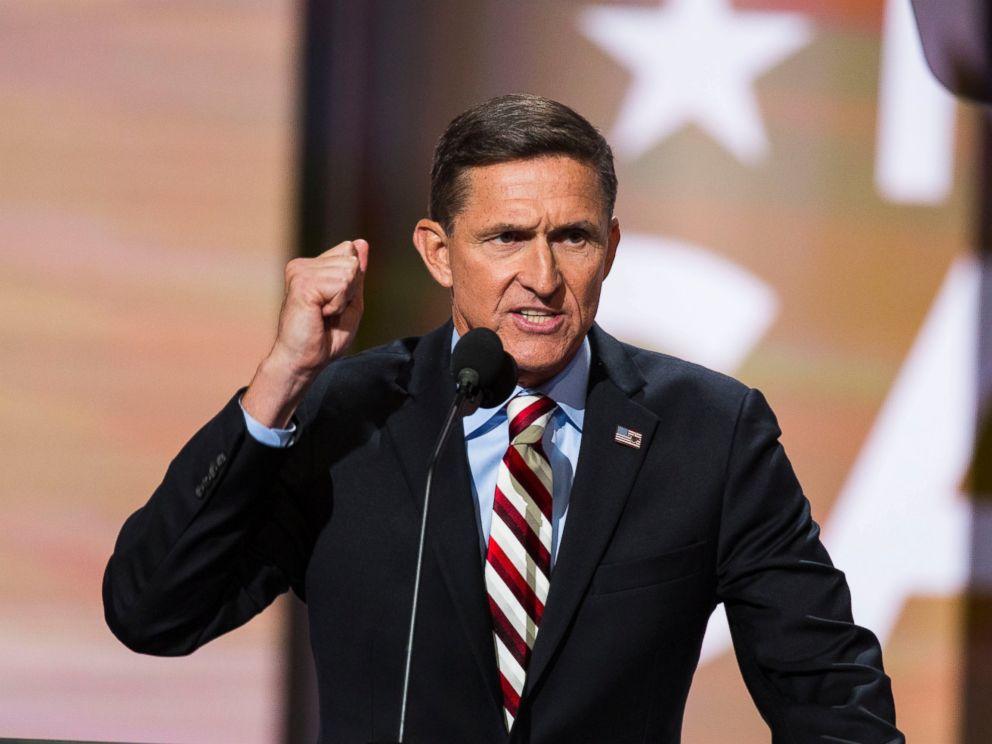Leaking transcripts, miscommunications and rejecting nominations may be interpreted as a cry for help within the bureaucracy. At this point, why wouldn’t the bureaucracy be crying for help? The only thing the White House has offered the members of Senate and the public this last week is pandemonium. Not only is the country’s essential national security apparatus in disarray, but domestic nominations are causing widespread hate as well—whether it be with regard to Michael Flynn’s resignation or Andrew Puzder’s nomination withdrawal. Unfortunately, alarms have been raised that this chaos will not stop at Flynn’s resignation.
Michael Flynn, the former head of the National Security Council, was a functional council member that spearheaded President Trump’s foreign policy agenda. His problems within the White House begin with his discussions with Russian ambassador to the United States, Sergey I. Kislyak, that occurred while Obama was still in office. These conversations involve Flynn assuring the diplomat that sanctions against Russia would be eased out. This in itself is a potential violation of the Logan Act that essentially restricts citizens from undermining U.S. foreign policy. However, within President Trump’s administration, one that is filled with alternative facts and fake news, such a misdemeanor probably wouldn’t have been enough to get Flynn fired. After all, Flynn was one of Trump’s ardent supporters during his campaign, leading a chant crying ‘lock her up,’ a reference to former Secretary of State and Democratic nominee, Hillary Clinton. In fact, I’m surprised President Trump took action on Flynn’s unlawful acts since he has no qualms about conducting his own unlawful acts, such as the Muslim Ban which contradicts the Immigration and Nationality Act of 1965.
Nevertheless, Flynn’s problems worsened when he apparently lied about his discussions with the ambassador to Vice President Mike Pence. It’s no surprise that Flynn’s story does not check out—he first claimed to have not had any such discussions with the Russians, moved on to saying he can’t be sure if the topic about sanctions came up and eventually blamed his failing memory for forgetting to inform Vice President Pence about the actual talks he had with the ambassador. As a result of Flynn’s poor memory, Vice President Pence spoke publicly and incorrectly about the talks taking place between Flynn and the Russian Ambassador. What should be the most surprising, but at this point only accentuates the disorder within the White House, is that President Trump’s administration knew about Flynn’s talks with the Russian ambassador early on in his tenure when Sally Yates, former attorney general, informed the administration about Flynn being compromised in early January. However, it was only when this news became public that President Trump took decisive action and asked for Flynn’s resignation. Following this, Senator John McCain, who chairs the Armed Services Committee, warned in a statement that Flynn’s resignation “is a troubling indication of the dysfunction” in the current national security operation. Even though Flynn submitted his resignation, there are heightening concerns now being expressed at an increasing rate among government officials that the national security framework apart from Flynn is spinning out of control. General Tony Thomas, head of the military’s Special Operations Command, warned Tuesday that the “government continues to be in unbelievable turmoil.” Comments like this coming from Washington are frightening because this is not a time for Trump to fool around in relation to foreign policy. Trump needs to take a hardline position with nuclear testing in North Korea, find methods to counter terrorist groups like Al-Qaeda and ISIL and find a solution to the refugee crisis without creating an even bigger humanitarian catastrophe.
But President Trump’s problems are not only foreign policy related, but also very much domestic. Earlier this week there was a massive protest that helped defeat the nomination of Andrew Puzder, a multimillionaire fast-food CEO who has been accused of “running companies rife with wage theft and sexual harassment” for Secretary of Labor. Puzder has been a CEO for the past 16 years and during this time he has fought against increasing minimum wage, paying for sick leave and the Affordable Care Act—some of the very labor laws and regulations that he would be trusted to enforce as labor secretary. Moreover, Puzder admitted to keeping an undocumented immigrant as a staffer in his house and admitted to not paying taxes for her work. How President Trump thought Andrew Puzder fit the qualifications to be Labor Secretary is unfathomable to me. He represents exactly the kind of person the Labor Secretary should be trying to protect a majority of low wage workers from.
With this information in mind, isn’t it fair to think the bureaucracy is crying? President Trump’s nominees have either followed unlawful practices that put them and the U.S. Congress in jeopardy or represent exactly the opposite of the position they have been nominated for. During President Trump’s short tenure, he has often been compared to former President Ronald Reagan. There are many aspects of their presidencies that are similar—their distrust in the cabinet, the misinformation being given to the public and the chaos created by the presidency. However, no matter how tumultuous President Reagan’s tenure was, at least he waited a few weeks to allow the people to adjust to each new shocking action. Trump has done no such thing—he keeps springing new information, creating new conflicts and stirring up even greater trouble domestically with his decisions. Michael Flynn and Andrew Puzder are only the start of what is yet to come.




